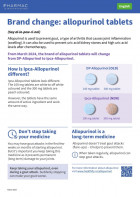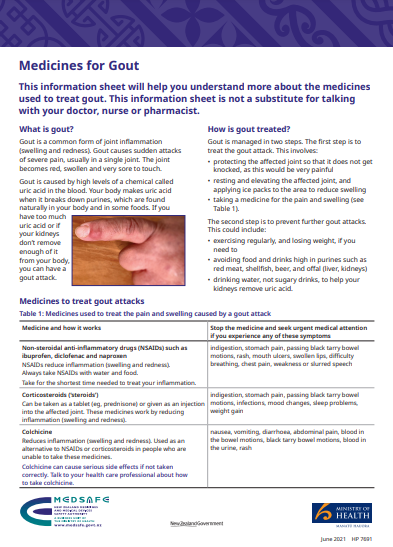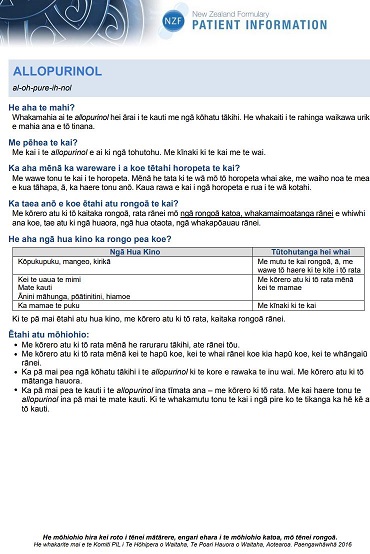Allopurinol is mainly used as a long-term daily treatment to prevent gout attacks or flares. It helps to prevent permanent damage to your joints.
Allopurinol can also be used to prevent some types of kidney stones and may be used in people receiving cancer chemotherapy, to prevent high uric acid that can occur with some types of chemotherapy.
- Allopurinol reduces the amount of uric acid your body makes. Uric acid is produced in your body when you digest and metabolise some types of food and drinks.
- Usually excess uric acid is passed out in urine, but when uric acid levels are too high, the extra uric acid can turn into crystals in your joints, causing pain and swelling. This is known as gout.
- With each new attack, the size and number of crystals grow and can sometimes be seen as lumps under the skin (tophi). Over time this can damage your joints, bones and kidneys.
To reduce gout attacks, it's important to keep your uric acid level below 0.36 mmol/L
- When your uric acid is below 0.36 mmol/L, no new crystals can form and crystals that are already in your joints can start to dissolve.
- The risk of gout attacks and joint damage is reduced.
- If you already have tophi, the goal is to get to a uric acid level below 0.3 mmol/L.
- Uric acid levels can be checked with a blood test, which can be done at a blood lab, at your doctors clinic or at some pharmacies.
Factsheets: Allopurinol for gout AND allopurinol brand change
Note: From March 2024, the brand of allopurinol tablets will change from DP-Allopurinol to Ipca-Allopurinol. Find out more about the brand change.
 [PDF, 175 KB] [PDF, 175 KB]
English [PDF, 175 KB], te reo Māori [PDF, 284 KB], Samoan [PDF, 332 KB], Tongan [PDF, 478 KB] |
Allopurinol brand change English [PDF, 138 KB], te reo Māori [PDF, 198 KB], Samoan [PDF, 184 KB] Tongan [PDF, 245 KB] |
Video: Deciding to take allopurinol for gout
(Health Navigator Charitable Trust, NZ, 2023)
Video: Starting on allopurinol for gout
(Health Navigator Charitable Trust, NZ, 2023)










